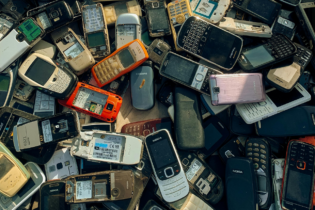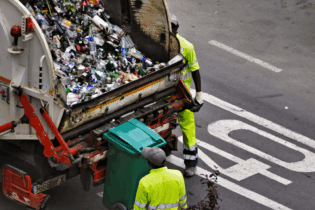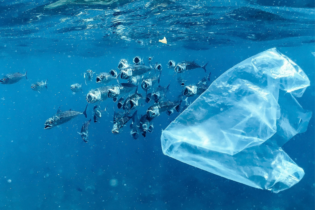Industrial packaging is designed and manufactured to specifications for the different risk classes of industrial products to be safe and secure in transport and use worldwide; and collection, reprocess and reuse is global best practice. The Responsible Packaging Management Council of SA (RPMASA) sheds some light on the subject.
Many people are not aware of the carbon benefits of collection and the reprocessing of industrial packaging. The RPMASA has a seat on the UN Committee of Experts for the Transport of Dangerous Goods and GHS, and networks with the International Packaging and Reprocessing Associations to bring best practice to South Africa. Performance testingAll packaging to be used for dangerous substances or products i.e. with UN numbers must be performance tested by the national competent body as per the UN Model regulations and be permanently marked with the manufacturers specific certification markings confirming specification, date and factory of manufacture. Similarly reprocessed packaging should be the correct specification for use, be tested and bear in addition the reprocessor’s registration mark. The SANS 10406 Audit and registration scheme for packaging reprocessors is about to start in South Africa to uplift local reprocessors and bring the country in line with international and national legislation and best practice, namely, SANS 10229 and 10406. Use of the correct specification is vital to reduce risks to people and the environment during handling, storage and transport of products as well as to contribute to sustainable use of resources and reduced carbon footprint. Environmental benefits
Industrial packaging provides great benefits to the environment not only in ensuring pollution prevention but also through correct specification and strength for product type – giving the benefits of enabling the repeated reuse of steel, plastic and composite packaging. Although not widely known to the general public, there exists a world-wide network of specialist companies who recover used industrial packaging from their national customer base – the end-users of the packaging. The international organisation for such companies is the International Confederation of Container Reconditioners (ICCR). Manufacturers and reprocessors / reconditioners now work together in most parts of the world to ensure that industrial packaging is made and reprocessed to work safely and efficiently with the highest environmental care. This working together is progressed in Europe through the work of the joint European Industrial Packaging Association (EIPA) at various international standards and regulatory meetings.
This international network of organisations recover used industrial packaging from a very wide base of end-users including the food, pharmaceuticals, oils and specialty chemicals industries. The packagings are individually inspected to check the packaging type and residual content before segregation, cleaning and multi-option recycling processes. The cleaned packaging can then be checked to determine the most environmentally (and economically) efficient route i.e.:
• reprocessing, reconditioning, refurbishing for re-use as a complete maintained package by third party
• recycling of materials following cleaning and destruction of the package
• recovery of the calorific energy from the packaging materials
The above options ensure the very highest environmental efficiency is maintained through the collection of used packaging by the professional reprocessing community. The reprocessing or reconditioning process will ensure that used packaging can have multiple ‘lives’ through repeated cycles of re-use, with typically in excess of five trips being possible for individual packaging, depending on design and product type. Each cycle results in considerable savings of resources and energy over the manufacture of new packaging each time. Such savings translate into considerable cost savings at a time when fuel, energy and manufacturing costs are soaring. Care taken to purchase the correct specification package, results in savings of natural resources, energy, fuel, emissions and transport costs, as well as reduced risk and liability.
Where do used chemical and industrial drums go?
A recent RPMASA survey highlighted that less than 10% of the approximate 10 million 20 and 25ℓ plastic manufactured annually, and only 10.4 % of the approximately one million larger ones, get collected for re-use or recycling. Steel is slightly better with less than 1% of the one million small drums but 46% of the two million larger ones being collected. However, if one notes that each steel drum can be safely re-used up to five times when reprocessed using the International RPM (Responsible Packaging Management) Guidelines, Checklists and Codes of Practice, this reduces to less than 10% of potential re-use.
Plastic is worse as most can be safely re-used up to 10 times if handled in accordance with the RPM Guidelines, Checklists and Codes, thus reducing the 10% recovery rate to less than 1 %. But what happens to the rest? Where do they go? Many are sold for domestic use especially for drinking water, beer brewing and storage of foodstuffs, posing serious risks to our poor from the residues which remain and impregnate the plastic. Others are dumped and end up causing pollution or being used by the unsuspecting poor. The 1 000ℓ IBCs (intermediate bulk containers) are also finding their way more and more to rural areas for water storage – who knows the previous contents and risks? The RPMASA as part of the International Responsible Packaging Management Initiative provides members with guidelines and management checklists for packaging, environmental and transport compliance, together with codes of practice for the safe reprocessing of steel and plastic drums, and IBCs. The association also has a comprehensive audit protocol to assist members with QHS & E compliance and to improve their operations – see www.saatca.co.za. How can you help replace these dangerous water containers? You can start by supporting the eThekwini City Health and RPMASA initiative for safe, happy drums started to develop and empower street traders to trade in new safe, pink ‘happy drums’ with a special logo, which is readily identifiable and confirms that the drums are new. For more information contact the RPMASA (www.rpmasa.org.za).






